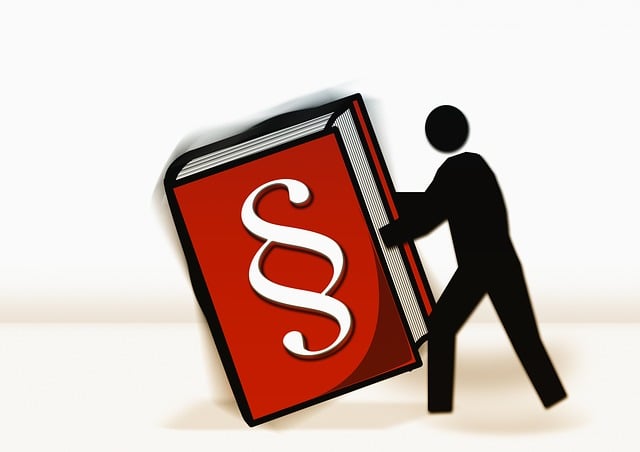Contempt of court charges involve hindering justice through actions like missing hearings or disobeying orders. There are two types: civil and criminal, with distinct consequences. Facing these charges requires strategic legal guidance, document gathering, understanding specific allegations, and skilled representation to navigate complex procedures and potential appeals. Sanctions can include fines, imprisonment, community service, probation, and license revocation. Legal professionals play a crucial role in ensuring fairness, advocating for clients' rights, and upholding the integrity of the judicial system throughout contempt proceedings.
“Contempt of court is a serious legal matter that can have significant consequences for individuals and businesses alike. This comprehensive guide explores the intricate world of contempt cases, offering a detailed look at various aspects often overlooked by laypersons. From understanding the definition and types of contempt to navigating procedural steps and appeals, this article equips readers with vital knowledge. Legal strategies for defense are dissected, highlighting the pivotal role of legal professionals. Gain insights into managing potential consequences and learn from real-world scenarios.”
- Understanding Contempt of Court: Definition and Types
- Legal Strategies for Defending Against Contempt Charges
- The Role of Legal Professionals in Contempt Cases
- Procedural Steps in Contempt Proceedings
- Potential Consequences and Sentencing Options
- Navigating Appeals and Post-Trial Actions
Understanding Contempt of Court: Definition and Types

Contempt of court is a serious legal issue arising from willful failure to comply with a court order or rule. It’s a broad term encompassing various actions that hinder the administration of justice, including refusing to attend court hearings, failing to produce evidence, or obstructing a witness. Understanding these actions and their implications is crucial for anyone involved in legal proceedings.
There are two primary types of contempt: civil and criminal. Civil contempt involves disobeying an order made in a civil case, such as not paying alimony or failing to follow a restraining order. Criminal contempt, on the other hand, pertains to conduct that disrupts the court’s ability to administer justice, like disrupting a trial or refusing to testify truthfully. Each type carries distinct consequences, reflecting the severity of the offense and aimed at ensuring the integrity and efficiency of the legal system.
Legal Strategies for Defending Against Contempt Charges

Facing contempt of court charges can be a stressful and confusing experience, but a well-prepared legal strategy can make all the difference. The first step is to gather and organize relevant documents and evidence that support your case. This could include court orders, correspondence with the judge or opposing party, and any records demonstrating your efforts to comply with previous orders. A skilled attorney can help navigate these complexities and identify potential loopholes or weaknesses in the prosecution’s case.
Additionally, understanding the specific allegations against you is crucial. Contempt charges often involve failing to meet court-ordered obligations, such as non-payment of alimony or failing to appear for a scheduled hearing. By thoroughly reviewing the accusation, you can construct a robust defense that addresses these issues directly. This may involve negotiating a settlement, presenting character witnesses, or demonstrating extenuating circumstances that led to the alleged infraction.
The Role of Legal Professionals in Contempt Cases

Legal professionals play a pivotal role in contempt of court cases, offering comprehensive services that are essential for a fair and just process. They serve as guides, advisors, and advocates for individuals or entities accused or involved in such cases. These experts possess an in-depth understanding of legal procedures and nuances related to contempt, enabling them to navigate complex landscapes with efficiency.
Their expertise encompasses crafting legal arguments, preparing documentation, and representing clients in court. They ensure that all parties understand their rights and obligations, facilitating a level playing field. Through strategic planning and robust representation, legal professionals help resolve contempt cases swiftly and effectively while upholding the integrity of the judicial system.
Procedural Steps in Contempt Proceedings

Contempt proceedings typically begin with a petition filed by a party alleging non-compliance with a court order. This is followed by service of the petition on the respondent, who then has an opportunity to respond and defend their actions. The court will hold a hearing where both parties present their cases; evidence may be submitted, and witnesses called to testify.
If the court finds the respondent in contempt, it may issue various orders, including fines, imprisonment, or specific performance of the original order. The procedural steps ensure that the accused receives a fair hearing while maintaining the authority and integrity of the court.
Potential Consequences and Sentencing Options

The potential consequences of being found guilty of contempt of court can be severe, including fines and imprisonment. Sentencing options are determined by the severity of the offence and any mitigating factors. A judge may impose a fine as a form of monetary punishment, which can range from a few hundred to several thousand dollars, depending on the circumstances. Imprisonment is also a common sentencing option, with terms varying from a few days to several months or even years in more serious cases.
In addition to financial penalties and incarceration, individuals found guilty of contempt may face other repercussions such as community service, probation, or the suspension or revocation of professional licenses. The judge may also order restitution to any victims affected by the contemner’s actions, aiming to compensate them for any losses or damages incurred due to the contemptuous behaviour.
Navigating Appeals and Post-Trial Actions

Navigating Appeals and Post-Trial Actions in Contempt Cases
After a contempt of court ruling, individuals or entities involved often have avenues to appeal or seek post-trial actions. This critical phase requires meticulous legal strategy. Appeals offer an opportunity to challenge the original decision, presenting new evidence or legal arguments that may sway the outcome. Legal professionals play a pivotal role here, ensuring all grounds for appeal are thoroughly explored and presented in a compelling manner.
Post-trial motions, such as those seeking a new trial or judgment notwithstanding the verdict, can also be employed to reverse or modify the contempt judgment. These processes demand a deep understanding of procedural rules and legal precedents related to contempt of court cases. Skilled legal counsel is indispensable for navigating these complex steps, maximizing chances of a favorable outcome, and securing justice in contempt proceedings.






